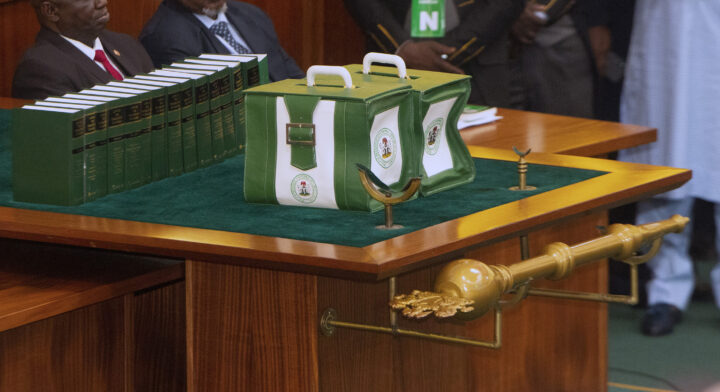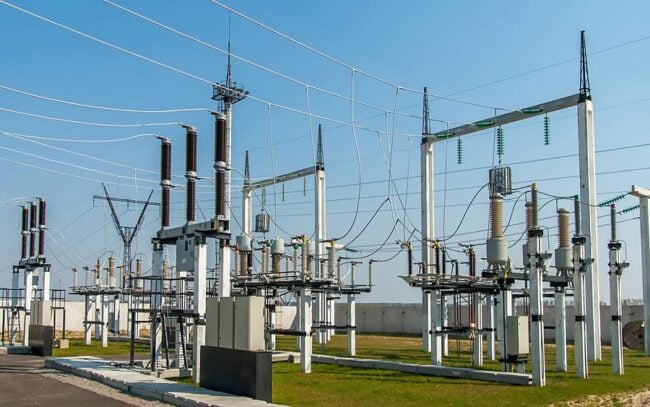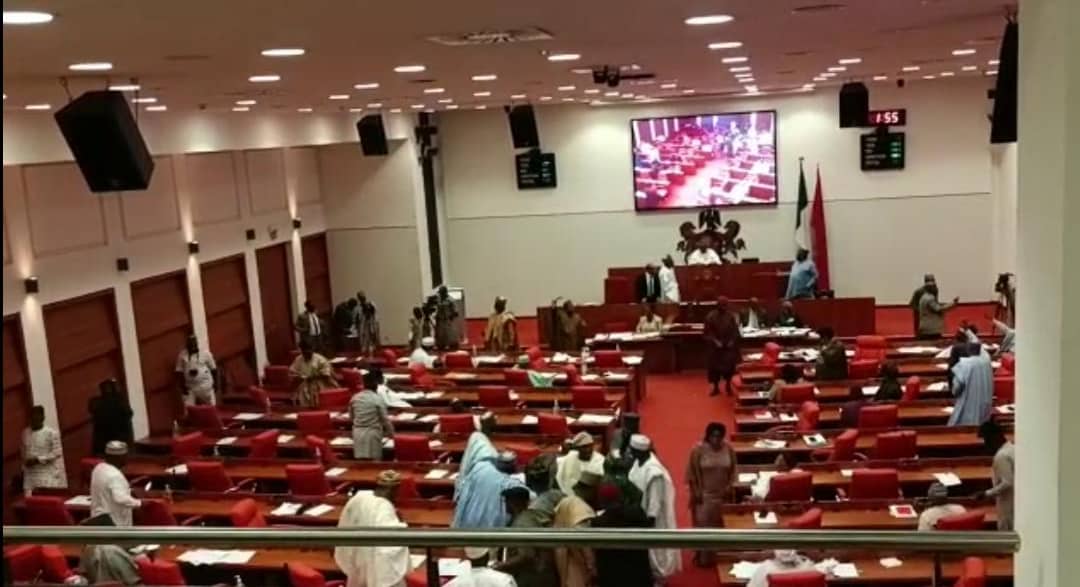PRESIDENT BUHARI PRESENTS 2020 BUDGET TO JOINT NASS The 2020 National Budget to the National Assembly. PHOTO; SUNDAY AGHAEZE; SUNDAY AGHAEZE. OCT 8 2019.
The senate has passed a supplementary budget of N819 billion for the 2022 fiscal year.
The development came after the senate extended the implementation of the 2022 budget till March 31, 2023.
The national assembly had passed N17.12 trillion as the 2022 budget, but it was later revised to N17.31 trillion at the request of Buhari who cited the impacts of the Russia-Ukraine war on the country’s economy.
The supplementary budget was passed on Wednesday after Jibrin Barau, chairman of the appropriation committee, presented a report during the plenary session.
Advertisement
While presenting his report, Jibrin said the funds are meant to cushion the effects of the recent floods and complete some projects that have reached 85 percent completion.
“[This will] make available funds to cushion the 2022 flood effects and completion of critical projects that have reached 85 percent completion,” the chairman said.
The senate’s decision to approve the supplementary budget followed a request by President Muhammadu Buhari last week.
Advertisement
The president said the supplementary budget would be financed through additional domestic borrowings and this would raise the budget deficit for 2022 to N8.17 trillion.
“The year 2022 has witnessed the worst flood incidents in recent history which has caused massive destruction to farmlands at the point close to harvest season. This may compound the situation of food security and nutrition in this country,” the president had said.
“The flood also devastated the road infrastructure across the 36 states and the FCT, [and] has affected sections of major roads and bridges nationwide that are critical to the movement of goods and services.
“The water sector was also affected by the flood and there is a need to complete some ongoing critical projects that have achieved about 85 project completion.”
Advertisement
Add a comment







